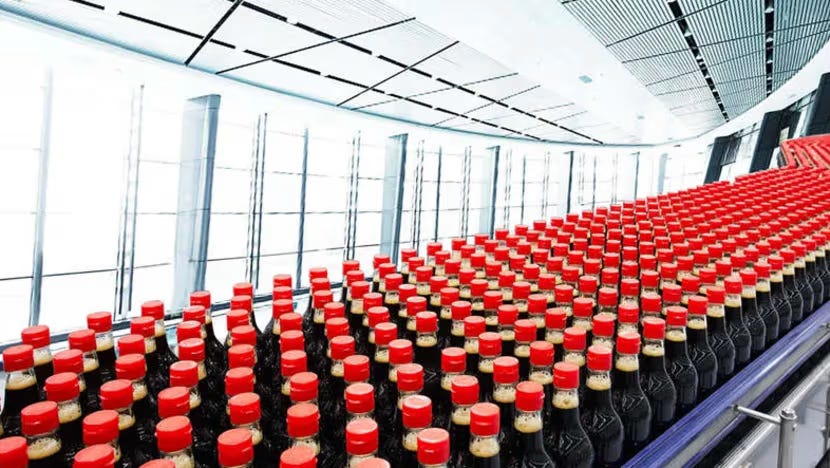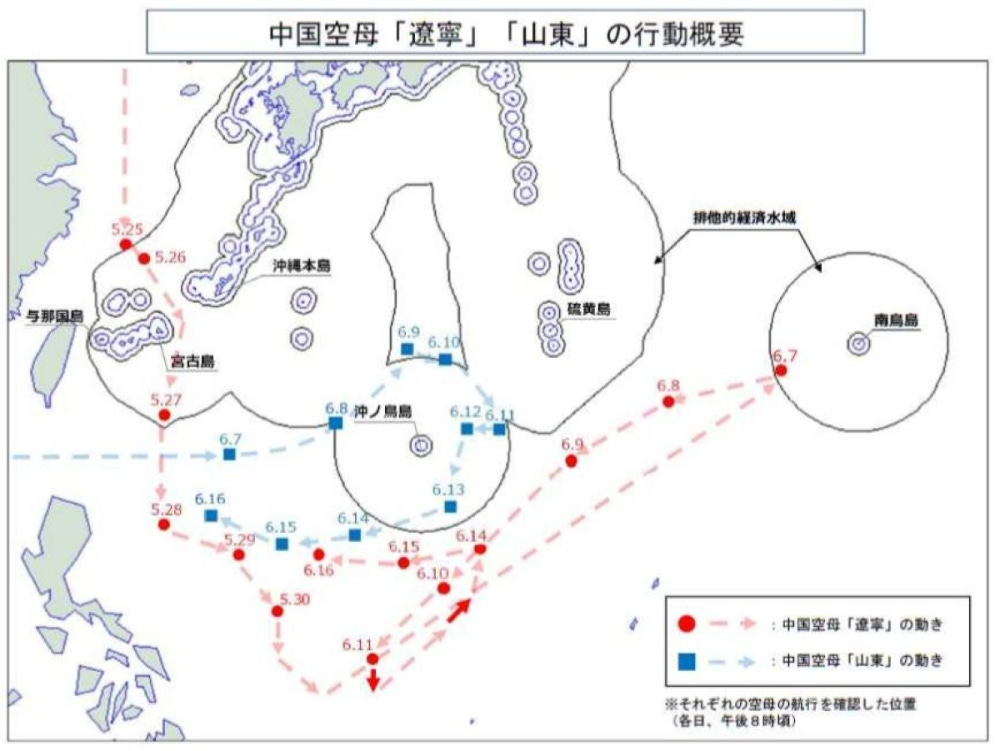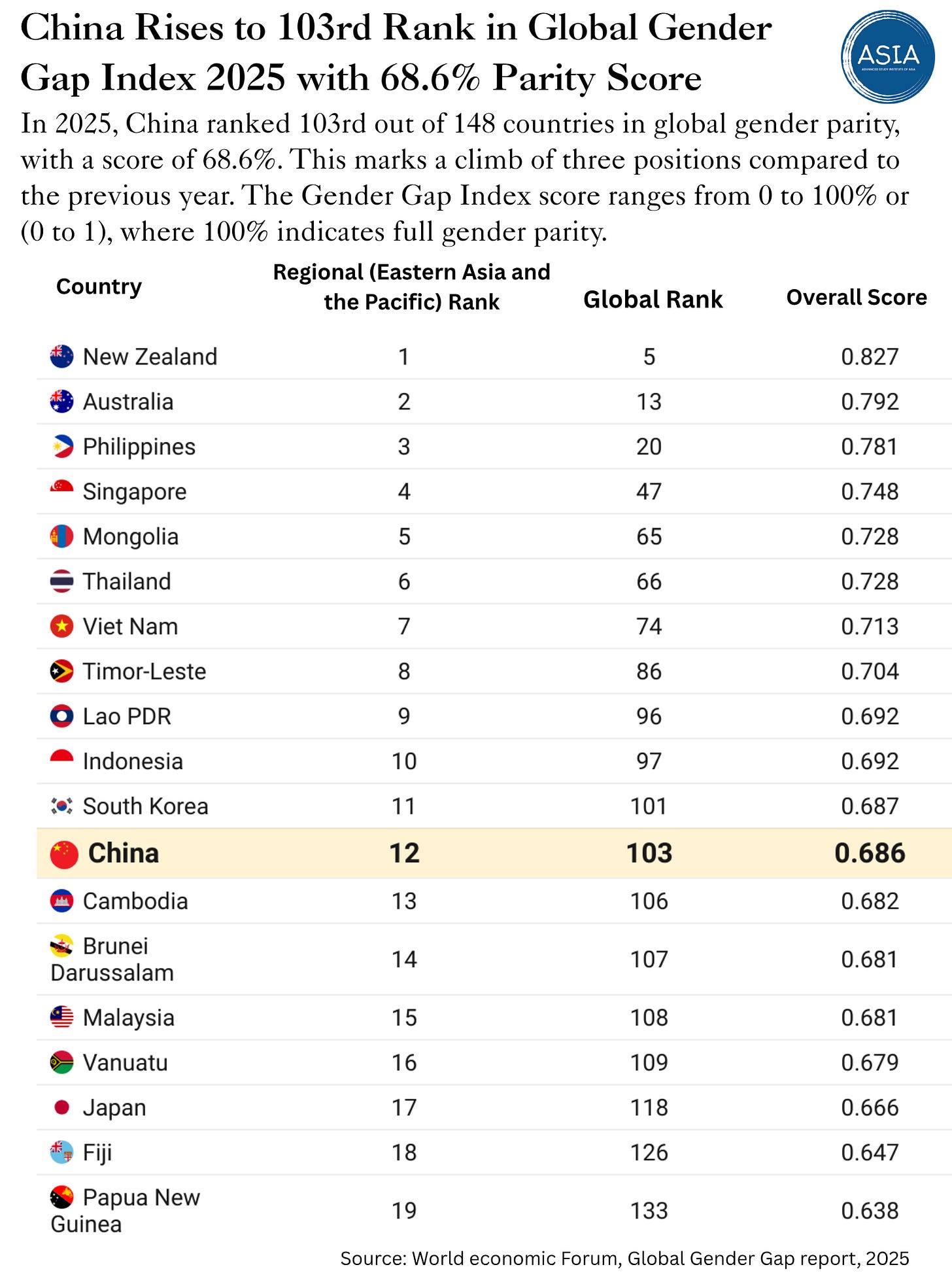China This Week: Hacks Russia for War Secrets, Aligns with Putin Against Israel, Builds Portable Neutron Weapon
This week in China, we explore key developments in its domestic and foreign policy landscape.
China Quote 🗩
“China has loads of things that it needs to export, and whether or not the U.S. puts tariffs on China, it’s pretty much impossible to stop the shifts in flows,” Leah Fahy, a China economist at Capital Economics.
Economic Activity🏦
China’s Housing Demand to Remain 75% Below 2017 Peak, Goldman Warns
The Straits Times reports that China’s annual urban demand for new homes will stay at just under 5 million units — a sharp fall from 20 million in 2017 — due to population decline, slowing urbanisation, and falling price expectations. Goldman Sachs analysts say investment demand could turn negative as owners offload vacant apartments.
China’s Top Soy Sauce Maker Rises on Hong Kong Debut
Channel News Asia reports that Foshan Haitian, China’s largest condiments producer, raised US$1.3 billion in a major Hong Kong IPO. Its shares rose slightly on debut, marking one of the city’s biggest listings this year. The company plans to use the proceeds to expand product lines, increase capacity, and grow its overseas presence.
What China’s Listing Frenzy in Hong Kong Means for Investors
Bloomberg reports that a wave of Chinese firms, including CATL and Foshan Haitian, are flooding into Hong Kong's IPO market, lured by relaxed rules and global investor access. While this boosts liquidity and reshapes the market’s sectoral tilt, risks remain around valuation discounts, policy volatility, and geopolitical exposure for global investors.
China Is Unleashing a New Export Shock on the World
Alexandra Stevenson writes in The New York Times that as Trump-era tariffs choke Chinese access to the US, Beijing is flooding markets from Southeast Asia to Europe with exports. Backed by state stimulus and overcapacity, China’s manufacturing surge is undercutting local industries and reshaping global trade, raising tensions and protectionist pressures worldwide.
A Port CEO Panned Trump’s Tariffs. Then a Chinese Envoy’s Wife Sent Praise
Erin Hale reports in Al Jazeera that the wife of China’s Consul General in Los Angeles privately praised the port's CEO for criticising US tariffs, revealing rare behind-the-scenes lobbying amid Trump’s trade war. While such contact is atypical for diplomatic spouses, it underscores local-level support for US–China trade ties, even as national tensions rise.
China Floods Brazil with Cheap Electric Cars, Industry Sounds Alarm
The Rio Times reports that Chinese automakers, led by BYD, now dominate Brazil’s electric vehicle market, accounting for nearly 90% of EV sales in 2024. With low import tariffs and aggressively priced models, China has rapidly expanded market share, prompting local industry pushback. Brazil plans to raise import taxes and encourage domestic production to safeguard jobs and strategic autonomy.
Inside China🐉
China’s State Security Agency Warns of Phishing Emails Sent by Foreign Spies
William Zheng reports in the South China Morning Post that China’s Ministry of State Security has warned that foreign spy agencies are using Trojan-laced phishing emails to target universities and defence research institutes. One attempt involved a fake job application sent to a shipbuilding expert, triggering fears of cyber-espionage as geopolitical tech and security rivalries escalate.
China and the World🌏
China Unleashes Hackers Against Its Friend Russia, Seeking War Secrets
Megha Rajagopalan reports in The New York Times that Chinese state-linked hackers have repeatedly targeted Russian defence firms and government agencies since the Ukraine war began, aiming to gather military intelligence. Despite public proclamations of unity, a leaked Russian FSB document reveals deep suspicion of Beijing, viewing China’s cyber-espionage as a strategic threat exploiting wartime vulnerabilities.
Putin and Xi Condemn Israel Over Iran Strikes
Reuters reports that Russian President Vladimir Putin and Chinese President Xi Jinping strongly condemned Israel’s recent strikes on Iran during a phone call, calling for immediate de-escalation and political solutions. Xi urged Israel to cease fire and protect civilians, while both leaders reaffirmed opposition to military responses in favour of diplomacy over Iran’s nuclear issue.
Japan Releases Map Tracking Chinese Carrier Activities in Pacific
Jesse Johnson writes in The Japan Times that Japan’s Defence Ministry has publicly released a rare map tracking Chinese aircraft carrier movements near its exclusive economic zone. The Liaoning and Shandong conducted simultaneous operations, including 520 aircraft sorties, in a show of naval capability aimed at simulating countermeasures against U.S. intervention in a Taiwan conflict, prompting heightened vigilance in Tokyo.
New Zealand Freezes Aid to Cook Islands Over China Agreements
The Guardian reports that New Zealand has paused NZ$18.2 million in funding to the Cook Islands after it signed a raft of undisclosed agreements with China, citing a breach of consultation norms under their special relationship. Wellington is demanding “concrete steps” to restore trust, amid growing regional concern over Beijing’s expanding Pacific influence.
Tech in China🖥️
China Builds Portable Neutron Gun Powered by Hydrogen-Lithium Nuclear Reaction

South China Morning Post reports that Chinese scientists have developed a compact neutron generator using hydrogen-lithium fusion, marking a breakthrough in portable nuclear tech. The device produces 10 billion fast neutrons per second and could be used for non-destructive testing, medical applications, or detecting explosives—though not yet weaponised.
China Leads Global Effort to Build Space Weather Monitoring Network
Space Daily reports that China has launched the International Meridian Circle Program (IMCP) to create the world’s most extensive ground-based space weather monitoring system. The initiative, backed by 36 global partnerships, aims to improve solar activity forecasting, enhance geospace research, and promote peaceful space exploration over a full solar cycle.
China’s Humanoid Robot Firms Pay 3 Times More to Tackle AI Talent Gap
Tech in Asia reports that Chinese humanoid robot companies are offering salaries up to three times higher than average to attract AI experts amid a talent crunch. With Beijing pushing for domestic innovation in robotics, firms are aggressively competing for engineers skilled in computer vision, control systems, and large language models to meet strategic development goals.
De/Cypher Data Dive📊
Image of the Week📸
Hong Kong exhibition showcases Chinese calligraphy and paintings from 3 major collections

— — —
Data By Bhupesh
Edited By Aurko
Produced by Decypher Team in New Delhi, India




